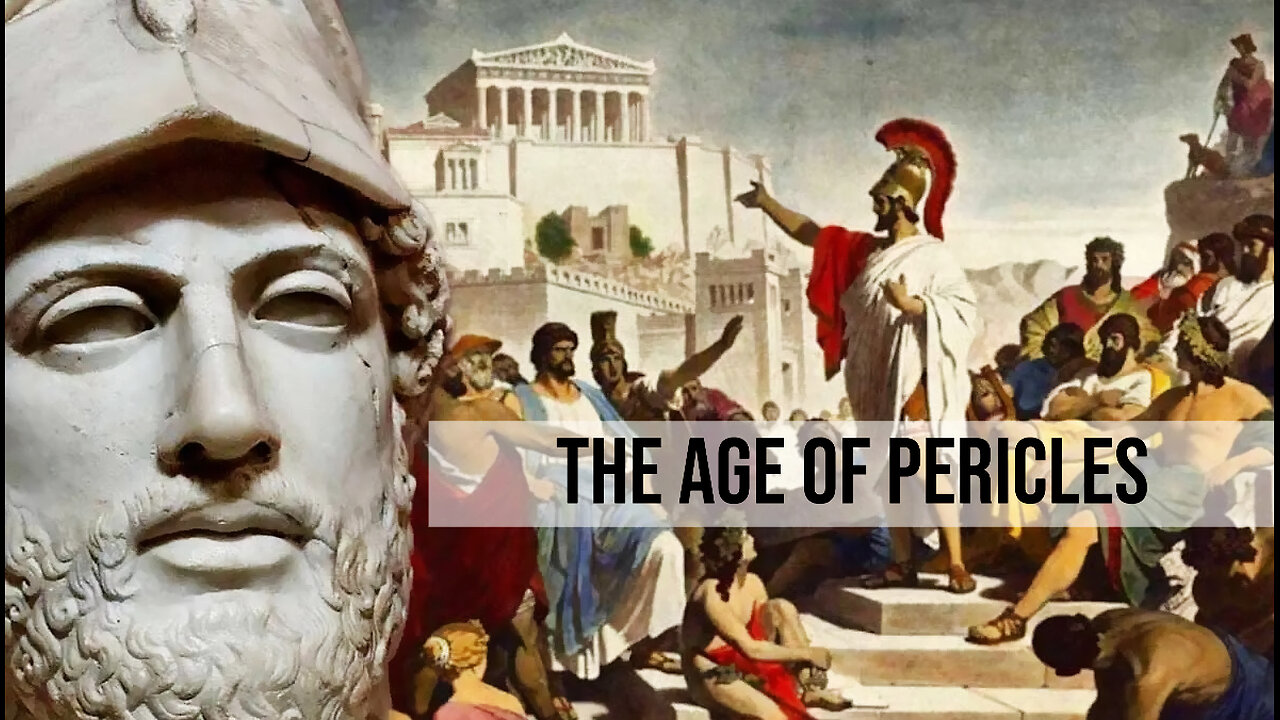Premium Only Content

The Age of Pericles | Plato (Lecture 23)
Lecture 23: The same events that brought about the death of Socrates also molded the career of his star student, Plato. Plato witnessed the defeat of Athens and the turmoil surrounding the brief civil war. For him, the execution of Socrates, whom he regarded as the best and wisest man he had ever met, was proof that politics had been hijacked by morally corrupt men of inferior intellect and judgment. Accordingly, he quit Athens for a time, going to Sicily and the court of Dionysius at Syracuse before returning to Athens to teach. His career had two overarching goals: to vindicate the life of his mentor and to explore the trajectories of Socrates’s philosophy further. It is often difficult to know where Socrates stops and Plato begins, especially given that Socrates is the protagonist in so many of Plato’s dialogues. To achieve that first goal, Plato wrote movingly of the trial of Socrates, in the Apology, and set some of his most moving pieces in the prison where Socrates faced execution. The Phaedo, for example, explores the nature of the soul and the question of death even as Socrates is given the cup of hemlock that will seal his doom. Although Socrates did not himself write down his philosophy, Plato’s exploration of his ideas suggests that there are two major tenets to their joint work: The first is that, beyond this world of imperfect copies, there lies a perfect world of ideal forms, and the second is that all virtues—goodness, piety, truth, courage, and the like—are, in essence, the same. Together, Socrates and Plato provide Western thought with a moral compass and a metaphysical outlook that sustain and define us.
Suggested Reading:
Plato. The Republic. Trans. by B. Jowett. New York: Barnes and Noble, 1997.
Lecture 24: https://rumble.com/v5f0yv8-the-age-of-pericles-an-elegy-to-athens-lecture-24.html
-
 28:44
28:44
The Great Courses
26 days agoHow the Medici Shaped the Renaissance | The Medici Restoration (Lecture 9)
182 -
 1:36:15
1:36:15
Glenn Greenwald
9 hours agoWhat Mark Zuckerberg’s New Misinfo Policy Means For Internet Freedom; The Disinformation Complex: Dismantled At Last? | SYSTEM UPDATE #384
112K87 -
 1:16:42
1:16:42
Adam Does Movies
13 hours ago $1.17 earnedHUGE Movies Releasing In 2025! + Movie News - LIVE!
30K3 -
 58:40
58:40
Flyover Conservatives
9 hours agoZuckerberg’s Shift: The Mar-a-Lago Effect or Strategic Realignment? - Clay Clark | FOC Show
31.5K4 -
 3:41:55
3:41:55
The Original Next Level Gaming
7 hours agoTuesday Night Live W/ Peter & Mike: The Return to Remnant II
27.8K4 -
 1:28:24
1:28:24
Anthony Rogers
10 hours agoEpisode 351 - Is Cancel Culture Over?
15.3K3 -
 1:22:29
1:22:29
Danny Polishchuk
11 hours agoThe Ultimate Comedy Hang Call In Show - Live From One Of New York City's Best Comedy Clubs
16.9K -
 9:58
9:58
Scammer Payback
7 hours agoEditing a Scammer's File to Send his Real Identity
14.4K8 -
 4:47:02
4:47:02
FreshandFit
8 hours agoElon Musk Censors Me, Alex Jones Stays Silent, & Tate Runs For PM!
107K39 -
 2:13:12
2:13:12
Slightly Offensive
8 hours ago $4.28 earnedZuck SUBMITS to Trump: Is Censorship OVER?! Or Just Beginning?
26.8K17